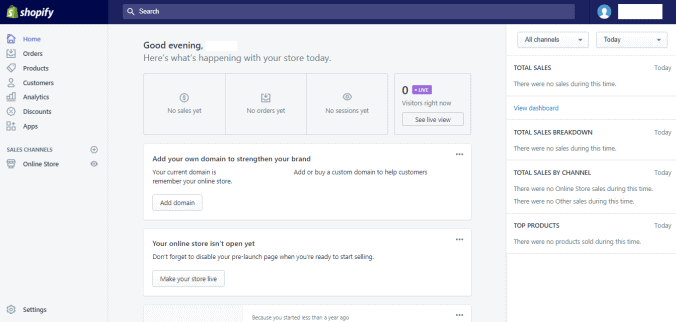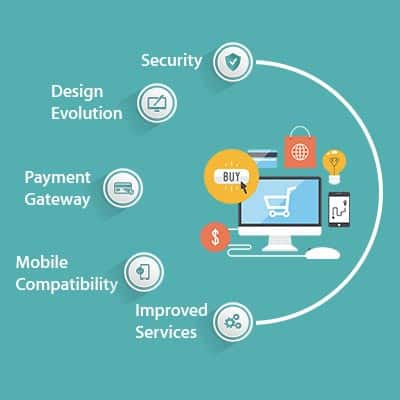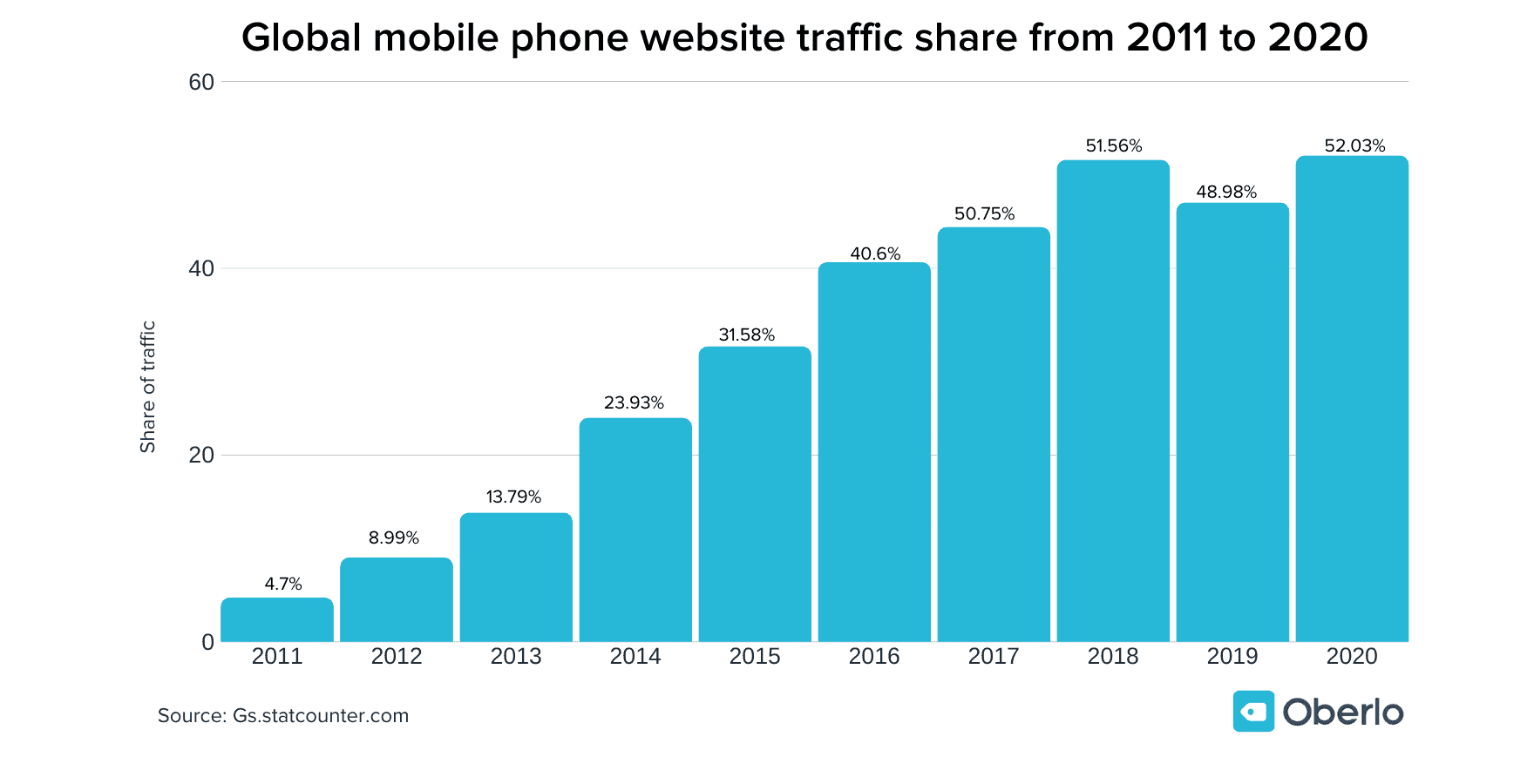Best E-Commerce Platforms in Canada
Quick Links:
- What is E-Commerce Software?
- What Are the Different Types of E-Commerce Software?
- How does E-Commerce Software Work? What Are Its Primary Features?
- Key Things to Consider When Choosing an E-Commerce System?
- How much do e-Commerce Systems Usually Cost?
- Finding the Right E-Commerce Software
- Frequently Asked Questions About E-Commerce Software
What is E-Commerce Software?
E-Commerce software is the platform that works behind the scenes in any online store where you buy products. E-Commerce platforms can vary in terms of complexity, price, and overall features, but typically allow companies to add and remove products at will, manage inventory, calculate and collect the appropriate taxes, as well as features for fulfilling orders.
To have a custom E-Commerce solution coded for you would be very expensive, which is why the category of eCommerce software has grown rapidly to match the growing demand for shopping online.
E-Commerce software seeks to simplify the process of selling and buying products online. It streamlines processes and helps to provide a user-friendly interface on both the backend for the companies that use them, and the front end for the customers that buy through them.
If you do not have the technical background or development staff on hand with relevant experience, it is almost always in your best interest to seek out an existing solution. Many E-Commerce solutions offer varying degrees of extension and customization available. So even if an out-of-the-box solution does not meet your exact needs, there is a high probability there is a solution that could, with the right additions.

What Are the Different Types of E-Commerce Software?
There are many different types of E-Commerce software. If you wanted to, you could break the category down to solutions that are built for specific types of shops, or industries. That is probably a bit too deep for us to cover each individually, so in this article, we will focus on the key types that you can expect to run into as you evaluate options.
On-Premise E-Commerce Software
On-premise E-Commerce software is generally regarded as a higher-security, more customizable, higher-cost option. These are installed and managed by your on-site team, or a third-party team that you pay to maintain your system. These managers help keep the system up to date, make additions, troubleshoot problems, and even train your staff to use the software. In general, on-premise E-Commerce solutions are going to be for enterprise companies who need something custom to fit with their current operations.
Software-As-A-Service (SaaS) Software
SaaS, which is also known as “hosted,†is by far the most popular type of E-Commerce software available today. SaaS is usually the preferable option for companies that do not have the development and technical requirements for an on-premise solution. It’s more hands-off, and the support provided by the company is your main go-through for technical issues.
Typically, SaaS E-Commerce software only requires a monthly fee. That fee might be a flat rate, or dependent on a variable — the number of orders that your company takes per month, the number of products that you offer, etc.
With SaaS E-Commerce solutions, all updates, patches, and feature rollouts are handled automatically. They also may offer out-of-the-box solutions for integrations with your other E-Commerce software. For instance, you might integrate your E-Commerce software with your customer relationship management software, or customer support solution.
Most online retailers today use a hosted SaaS E-Commerce solution. They can be launched in a fraction of the time and typically have much lower overall costs for the company than an on-premise solution.
How does E-Commerce Software Work? What Are Its Primary Features?
E-Commerce software is designed to do one key thing — to make your online store run smoothly. That is its main job.
While you shouldn’t expect that every E-Commerce solution will tackle every potential feature that you could want, you’ll find that there is a vast selection. Some are more simple than others, which might be preferable for smaller companies. Others are much more robust and may include features for things like accounting, social media, marketing, high-ticket sales, fulfillment, or warehousing. Alternatively, the software may integrate with other third-party solutions that provide these features.
At the most basic level, most E-Commerce software solutions provide a number of key features:
Manage Products
Manage the products available in your online store. This typically includes SKU management, variations (quantity, size, color), product images, and more. Any E-Commerce solution will give you complete control over what is offered in your store and what is shown to customers.
Customer & Order Management
Most E-Commerce software also offers basic customer and order management. This typically includes managing an order from placement by the customer all the way through delivery. They also may provide various features and reporting options, such as giving customers the ability to track their package or get a high-level view of your business through advanced reporting.
Shipping and Taxes
Modern E-Commerce software will also offer features for handling shipping and taxes for you. With different regulations for selling products online to customers in different countries, this is important for ensuring that you are meeting your obligations and complying with regulations in all of the locations that you sell to.
Marketing
Sales don’t come without marketing. While more E-Commerce solutions wouldn’t be considered a full-blown marketing suite, many do offer numerous features for marketing your products or integrating with third-party marketing suites to improve your ability to get in front of your target audience.
A Solid, Tested Customer Experience
Any E-Commerce solution that you choose will bring to the table years of experience in the industry. They’ve been in the trenches with E-Commerce companies, and have been optimizing their software to help companies produce sales. What that means for you, is that in investing in their solution, you get to tap into that experience and harness it for your own business.

Key Things to Consider When Choosing an E-Commerce System?
Choosing the right E-Commerce system is a very important decision for any new company, or an established brand looking to sell their products online.
Migrating from one E-Commerce platform to another can be time-consuming, costly, and error-prone, so it is important that you make the right choice in the beginning. Ideally, you should create a list of the features and needs that are important to your company. Demo several systems that offer those features to see if they meet your requirements.
Some of the primary considerations that you need to take into account when choosing an E-Commerce solution include:
Pricing
As with any big investment into your business, pricing is always going to be a concern. You have a budget that you have to stay within, which could potentially limit the options that are available to you. Being very clear in terms of what you can afford and want to spend will help you to quickly narrow down the list of E-Commerce software options.
Integrations
What software do you need your online shop software to integrate with? You may have CRM software, accounting software, fulfillment or warehousing software, or another solution that you need your E-Commerce store to integrate with. Ensuring that you filter your options down to those that offer your must-have integrations can save you time.
SEO Friendliness
Search engine optimization, the process of making your website searchable and easily accessible on Google and other public search engines. For many, this will be a prime consideration as search engines present one of the lowest cost ways to acquire new customers. While SEO can be a long-term strategy, choosing an E-Commerce software with quality built-in SEO options is critical.
Customer Service
E-Commerce companies thrive and die by the service that they deliver to their customers. 49% of buyers have made impulse purchases after receiving a more personalized experience. The customer service features should be an important consideration. Some E-Commerce solutions will offer full customer support and service features with their offering, while others will offer only basic features and instead, integrate with third-party solutions.
Scalability
As your business grows, you need a solution that will be able to scale with you. Handling 100 orders per month is much different than handling 10,000. You need a solution that is going to be able to scale with your company. However, make sure that you weigh this with realistic expectations. On the other hand, don’t choose the ultra-scalable option when you are just starting out if you don’t have the trends to necessitate that purchase and instead opt for something that makes sense for your business.
Security
Customer data security is critical, and larger companies have more risk in this area than small ones. Determine what kind of security features your business will require. This could be a quick way to whittle down your list of possible options. Typically, E-Commerce solutions with a strong focus on security will be the more expensive, enterprise solutions.

Mobile Friendliness
Today, 52% of all internet traffic is mobile. Mobile traffic also makes up for roughly the same percentage of total E-Commerce sales on a yearly basis. So what does that mean? It means that offering a website that is not mobile-friendly could limit your sales by more than 50%. Mobile-friendliness should be a key consideration when it comes to choosing an E-Commerce software for your company.

How much do e-Commerce Systems Usually Cost?
The average cost of an eCommerce system depends on a variety of different factors. Chiefly among those is the type of E-Commerce software that you choose. On-premise, enterprise solutions are always going to be more expensive.
SaaS E-Commerce solutions are typically less expensive but do offer several different tiers and pricing plans based on factors like the number of orders that you accept each month, or the number of products that you offer.
Here are some ballpark starting figures for popular SaaS E-Commerce platforms.
| E-Commerce Software | Starting Price |
|---|---|
| Shopify | $29 Per Month |
| BigCommerce | $29.95 Per Month |
| WooCommerrce | Free (Extension Marketplace) |
Finding the Right E-Commerce Software
Deciding on an E-Commerce solution for your business is a tough decision. It’s one that will have a big impact on your ability to serve customers, organize your company, and deliver exceptional experiences for customers and employees alike.
Frequently Asked Questions About E-Commerce Software
What is E-Commerce Software?
E-Commerce software that manages the process of selling goods online, both physical and digital.
How much does e-Commerce software cost?
Typical monthly prices are between $20-$100 per month, but it may depend on your monthly sales volume, number of users, and needed features.
What features are typically included with E-Commerce software?
E-Commerce software typically includes features for managing products and orders, customer relationship management, shipping and tax management, marketing, and integrations with third-party software.
Is E-Commerce software hosted in the cloud?
Yes, modern E-Commerce systems are hosted in cloud-based solutions.
Written by Smarter Loans Staff

The Smarter Loans Staff is made up of writers, researchers, journalists, business leaders and industry experts who carefully research, analyze and produce Canada's highest quality content when it comes to money matters, on behalf of Smarter Loans. While we cannot possibly name every person involved in the process, we collectively credit them as Smarter Loans Writing Staff. Our work has been featured in the Toronto Star, National Post and many other publications. Today, Smarter Loans is recognized in Canada as the go-to destination for financial education, and was named the "GPS of Fintech Lending" by the Toronto Star in 2019.
Discover Popular Financial Services
Why Choose Smarter Loans?

Access to Over 50 Lenders in One Place

Transparency in Rates & Terms

100% Free to Use

Apply Once & Get Multiple Offers

Save Time & Money

Expert Tips and Advice











